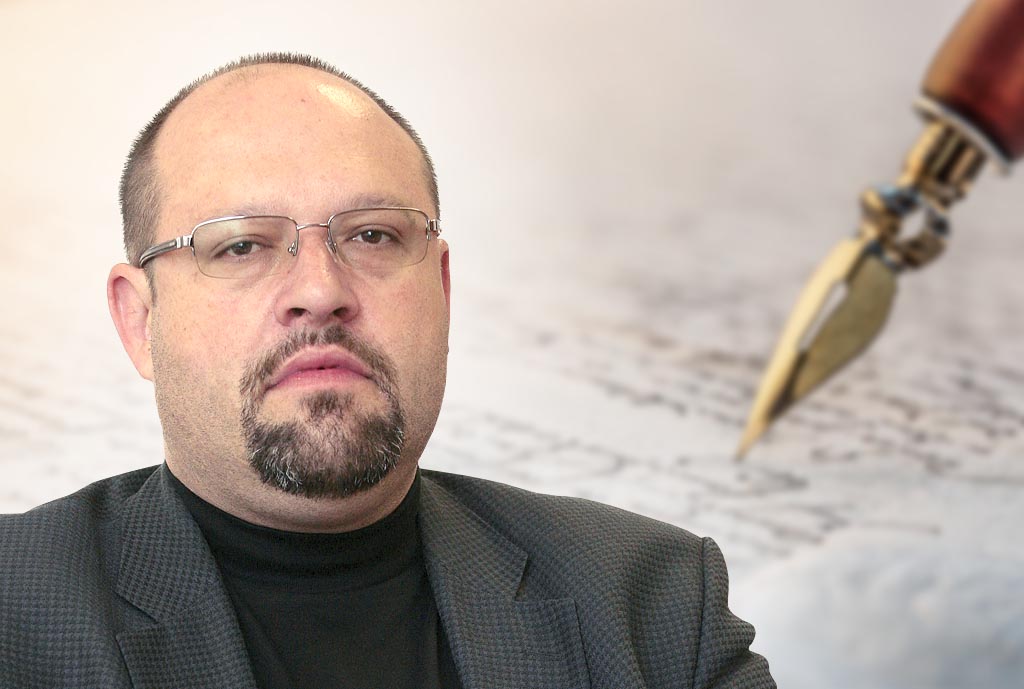By: Dr Matevž Tomšič
Democracy is commonly understood as “the rule of the people”. Former US President Abraham Lincoln defined it in his famous speech in November 1863 at the Gettysburg military cemetery (the site of one of the decisive battles in the American Civil War) as a system of government of the people, by the people, for the people. Modern democracy is representative in nature, which means that the majority of decisions are made indirectly by the people through their elected representatives. There are also forms of direct decision-making, such as referendums, but these are mostly complementary to decision-making in representative bodies.
The reality is that very few decisions, whether through indirect or direct means, are made with unanimous consent, meaning the agreement of all members of the decision-making body. Thus, the principle of majority rule prevails. Positions of power are occupied by those who enjoy the support of the majority of voters. And the normative acts (laws, decrees, regulations, etc.) for which the majority of representatives (or voters in the case of a referendum) vote come into effect. In this way, democracy can be seen as the rule of the majority.
However, such a principle is not as unproblematic as it may seem at first glance. Even a majority-supported government can behave autocratically and violate the rights (interests) of the body of citizens. Political thinkers of classical liberalism, such as John Stuart Mill and Benjamin Constant, expressed concerns about the so-called tyranny of the majority, where those in power, even if inaugurated based on the majority will of the people, could usurp all power in their hands and thereby encroach on almost all areas of life with their decisions. This would greatly endanger the freedom of citizens. Therefore, they believed that any form of government, even if democratically elected, must be limited in its powers. From this perspective, the concepts of separation of powers and systems of checks and balances arise, where different branches of government mutually oversee each other, theoretically preventing the concentration of power in the hands of a particular political faction.
The attribute of modern representative democracy, therefore, is not only majority support as the basis of legitimacy for the ruling authority but also the limitation of those in power and the existence of control over their actions. Only in this way is it possible to ensure that political power is not used to pursue the interests and benefits of specific groups at the expense of others.
Recent developments in Slovenia, however, indicate a significant departure from the principle of the separation of powers, where political power is at least somewhat dispersed. There is virtually no institutional control over the functioning of the ruling coalition. The Constitutional Court, which should serve as the highest guardian of the constitutional order and the final barrier against abuses of power, demonstrated its failure to fulfil its function by withdrawing a provisional injunction regarding the law on public broadcasting. By doing so, it directly sided with the ruling coalition (at the expense of a group of citizens who were denied legal protection), proving that it no longer performs its role. Furthermore, the President of the country interprets the plurality of opinions within the institution as problematic and intends to work on eliminating it. We may fear that over time, the Constitutional Court will become entirely one-sided, with only left-leaning activists with legal degrees being nominated and appointed. It may become a judicial equivalent of the Council of RTV Slovenia (the public broadcaster). In this way, during the reign of “freedom”, we will achieve complete “unity of power”, similar to what we experienced during communist times. Considering that the ruling coalition enjoys support from the mainstream media and privileged parts of civil society, it will gain power in the style of Russian autocrat Putin. The path to the tyranny of the majority is wide open.

